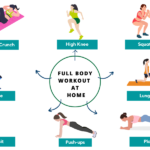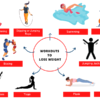In the modern age, the importance of maintaining balanced hormonal health is becoming increasingly evident. Testosterone, often dubbed the ‘male hormone’, plays a pivotal role in masculine characteristics and an array of bodily functions in both men and women. Low testosterone levels can be the culprit behind fatigue, reduced muscle mass, foggy thinking, and a dip in libido, to name a few. While the age-related decline in testosterone is natural, lifestyle, diet, and certain habits can further deplete its levels.
Thankfully, nature has given us various tools and methods to boost this essential hormone without synthetic interventions. Whether aiming to boost your athletic performance, improve your mood, or kindle that lost spark in your romantic life, understanding the natural avenues to elevate testosterone levels can be a game-changer.
In this comprehensive guide, we will dive deep into scientifically-backed strategies to enhance your testosterone levels naturally. Every aspect of your life can influence this essential hormone, from what you eat and how you sleep to how you manage stress. So, fasten your seat belts and embark on a transformative journey toward optimal hormonal health.
Common Symptoms of Low Testosterone
First, you should know the symptoms to identify low T. The common symptoms are
- Low sex drive
- Loss of muscle mass.
- Lowered sperm count
- Reduced bone density
- Loss of body hair
- Fatigue
- Erectile dysfunction (ED)
- Mood changes like irritability or depression
- Difficulties with memory and concentration
- Problems with fertility
10 Best Methods to Increase Testosterone Naturally
- Take Vitamins that Boost Testosterone.
- Try Natural Testosterone Boosters.
- Cook Food with Testosterone Boosting Ingredients.
- Improve your Healthy Diet.
- More Exercise.
- Minimize Stress.
- Avoid Drinking Alcohol.
- Use Glass instead of Plastic.
- Get plenty of sleep.
- Address Medical conditions with the help of a Certified Doctor.
1. Take Vitamins that Boost Testosterone
Specific vitamins have been shown to help increase testosterone levels in the body. These include:
Vitamin D: Studies have found a link between vitamin D deficiency and low testosterone levels. Increasing your intake of this vitamin through sunlight exposure or supplements may help improve your testosterone levels.
Vitamin B6: This vitamin plays a vital role in testosterone production. Incorporating foods rich in vitamin B6 into your diet or supplements can raise your testosterone levels.
2. Try Natural Testosterone Boosters
Natural testosterone boosters are supplements that can help support healthy testosterone levels. Some popular natural ingredients found in these boosters include:
Tribulus Terrestris: This herb has been used in traditional medicine to enhance male sexual performance and increase testosterone levels.
Fenugreek: Fenugreek extract is known for its potential to promote testosterone production and improve sexual function.
D-Aspartic Acid: This amino acid can help stimulate the release of luteinizing hormone, promoting testosterone production.
3. Cook Food with Testosterone Boosting Ingredients
Incorporating certain ingredients into your meals can also increase testosterone levels naturally. Think about incorporating these testosterone-enhancing foods into your meal plan:
Oysters: Rich in zinc, oysters can help optimize testosterone production.
Salmon: This fatty fish is packed with omega-3 fatty acids, which can positively impact testosterone levels.
Garlic: Garlic contains allicin, a compound found to increase testosterone levels.
Pomegranate: Studies have shown that pomegranate juice can help enhance testosterone levels and improve overall sexual health.
4. Improve your Healthy Diet
Maintaining a healthy diet is crucial for naturally increasing testosterone levels. Make sure to include the following in your diet:
Protein-rich foods: Consuming adequate amounts of protein can promote testosterone synthesis.
Healthy fats: Including sources of healthy fats, such as avocados and nuts, can contribute to optimal testosterone levels.
Complex carbohydrates: Opt for whole grains and vegetables to provide sustained energy and support hormone production.
5. More Exercise
Regular exercise can significantly impact testosterone levels. Incorporate cardiovascular and strength training exercises into your routine to maximize their effects on testosterone production. Strive for 150 minutes of moderate aerobic exercise or 75 minutes of high-intensity activity weekly.
6. Minimize Stress
Chronic stress can negatively affect testosterone production. Stress management techniques such as meditation, yoga, or deep breathing exercises can help reduce cortisol levels and promote healthy testosterone levels.
7. Avoid Drinking Alcohol
Excessive alcohol consumption has been linked to lowered testosterone levels. Limit your alcohol intake or consider eliminating it to support optimal testosterone production.
8. Use Glass instead of Plastic
Avoid using plastic containers for food storage and opt for glass instead. Some plastic products contain chemicals like phthalates, which can disrupt hormones, including testosterone. Using glass containers can minimize the risk of exposure to such chemicals.
9. Get plenty of sleep
Getting enough sleep is crucial for sustaining optimal testosterone levels. Target 7-9 hours of restful slumber every night to ensure hormone balance and holistic health.
10. Address Medical conditions with the help of a Certified Doctor
If you suspect you have low testosterone, it is essential to consult a certified doctor who can assess your symptoms and conduct appropriate tests. They can provide personalized guidance and recommend suitable treatments or lifestyle modifications to address underlying medical conditions.
Conclusion
Increasing testosterone levels naturally can profoundly impact overall health and well-being. Incorporating these methods into your lifestyle can enhance testosterone production, improving libido, energy levels, muscle mass, and overall quality of life. Remember to consult a healthcare professional before significantly changing your diet or exercise routine.













